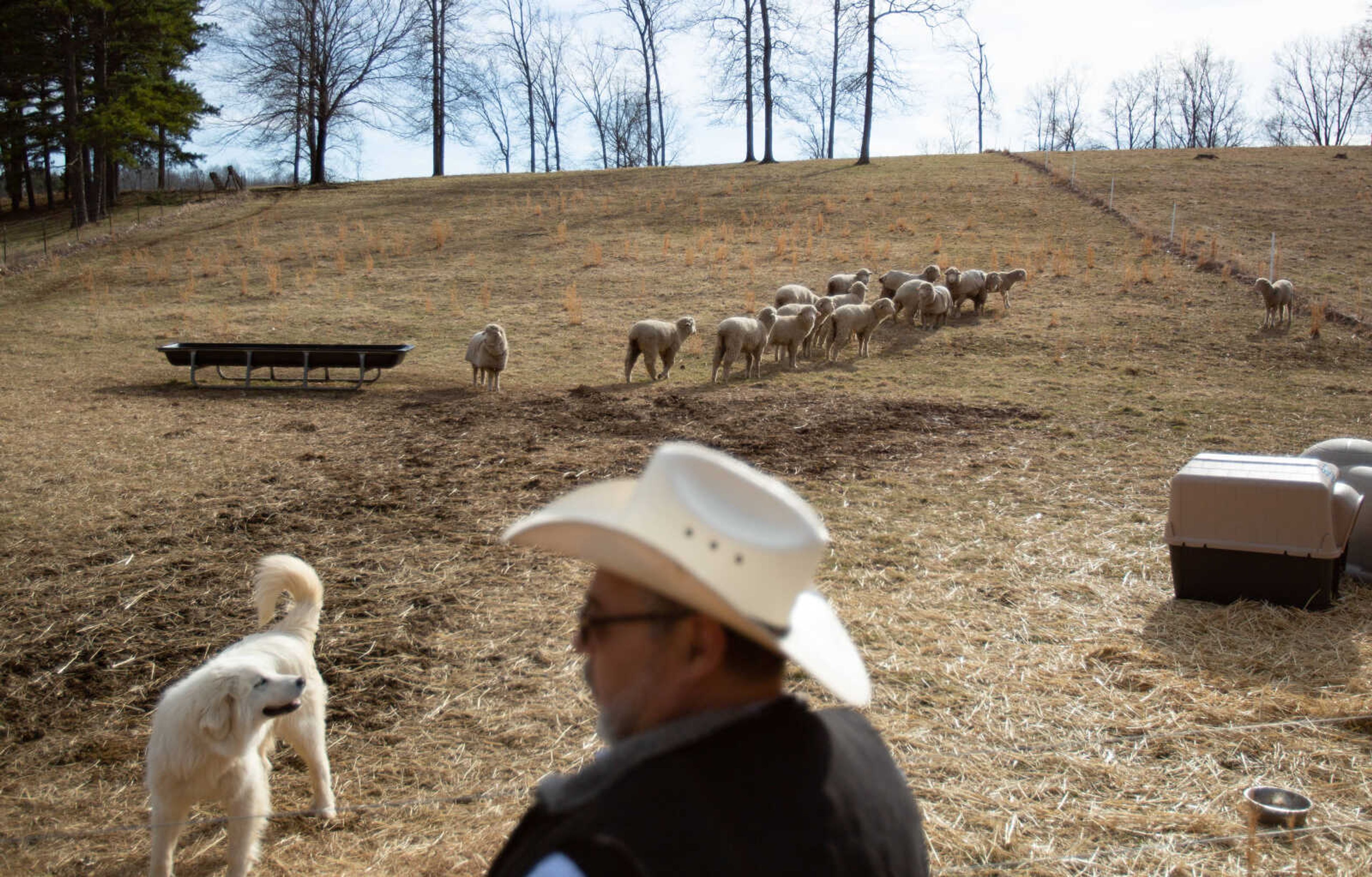Touring the Farm: Mesta Meadows ranchers educate, practice regenerative farming
When Ed Crowley and his wife, Terri, lived on a dairy sheep farm in Kentucky, they received a phone call from a woman in Florida. She said she was coming in for a conference, and her daughter, who had never been on a farm before, was coming with her; could they visit their farm and milk a sheep?...
When Ed Crowley and his wife, Terri, lived on a dairy sheep farm in Kentucky, they received a phone call from a woman in Florida. She said she was coming in for a conference, and her daughter, who had never been on a farm before, was coming with her; could they visit their farm and milk a sheep?
The Crowleys agreed, and Ed said something “sunk in” during that visit: He realized the importance of helping people understand where their food comes from and how it’s grown.
In November 2020, the Crowleys bought Mesta Meadows, 80 acres in Glenallen, Mo., where they raise approximately 50 sheep, 12 Scottish highland cows, 50 chickens, 12 ducks, five great Pyrenees dogs, two goats and two other dogs. Steve Stovall, Southeast Missouri State University (SEMO) assistant professor of management, and Nick Johnston, Southeast Missouri State University associate professor of hospitality management, are partners in the Ozark Highland Cattle Company portion of the project. One of the main aims of the farm is education.
“We’re big on slow food, healthy food, food that’s grown,” says Ed, who is an assistant professor of management at SEMO and the vice chairman of the Slow Food Southeast Missouri board. “We don’t use chemicals. We only use antibiotics in animals when they absolutely have to have it. We don’t use any growth hormones. … We’re big believers in taking care of the land and the animals, and then they’ll take care of you. So, that’s what we try to do.”
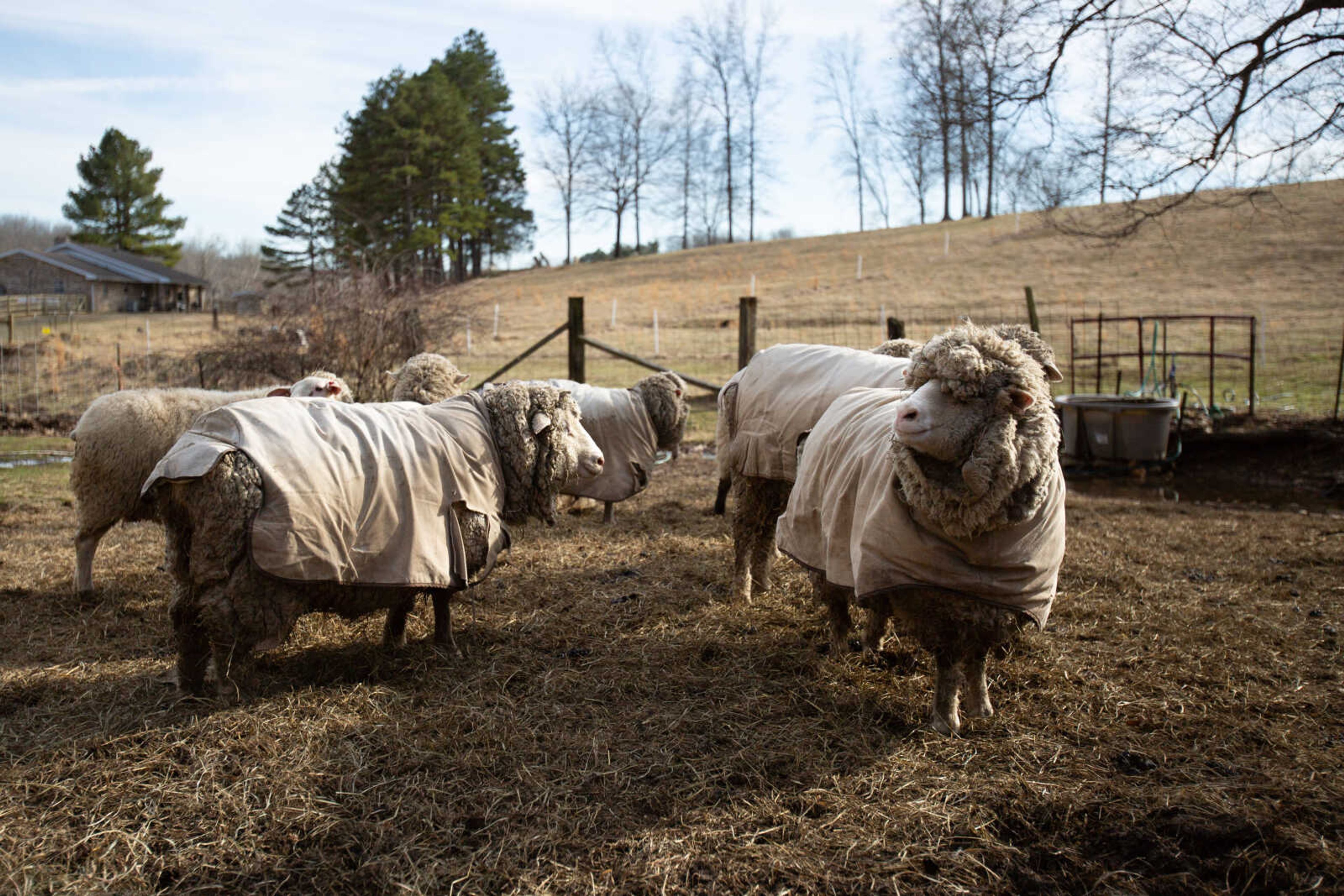
Ed grew up on a large dairy and beef farm in Southwest Missouri and said when he was younger, he couldn’t wait to get away from it. He spent years starting companies in the technology sector.
After their children grew up, Ed’s wife said she wanted to get dairy goats. The two took courses for nearly a year at the University of Kentucky to learn how to raise small ruminants. After the goats, they decided to buy some sheep, too. From there, their ranching operation grew.
When the couple moved to Missouri in February 2020, they rented land in Tennessee to keep their animals at while they looked for property to buy. After purchasing the property in Glenallen, Ed learned his grandfather was the telegrapher there in the 1940s, and his father lived in the town when he was approximately three years old.
Ed raises two major breeds of sheep at Mesta Meadows: Rambouillet and cormo. The original sheep in the flock come from North Dakota.
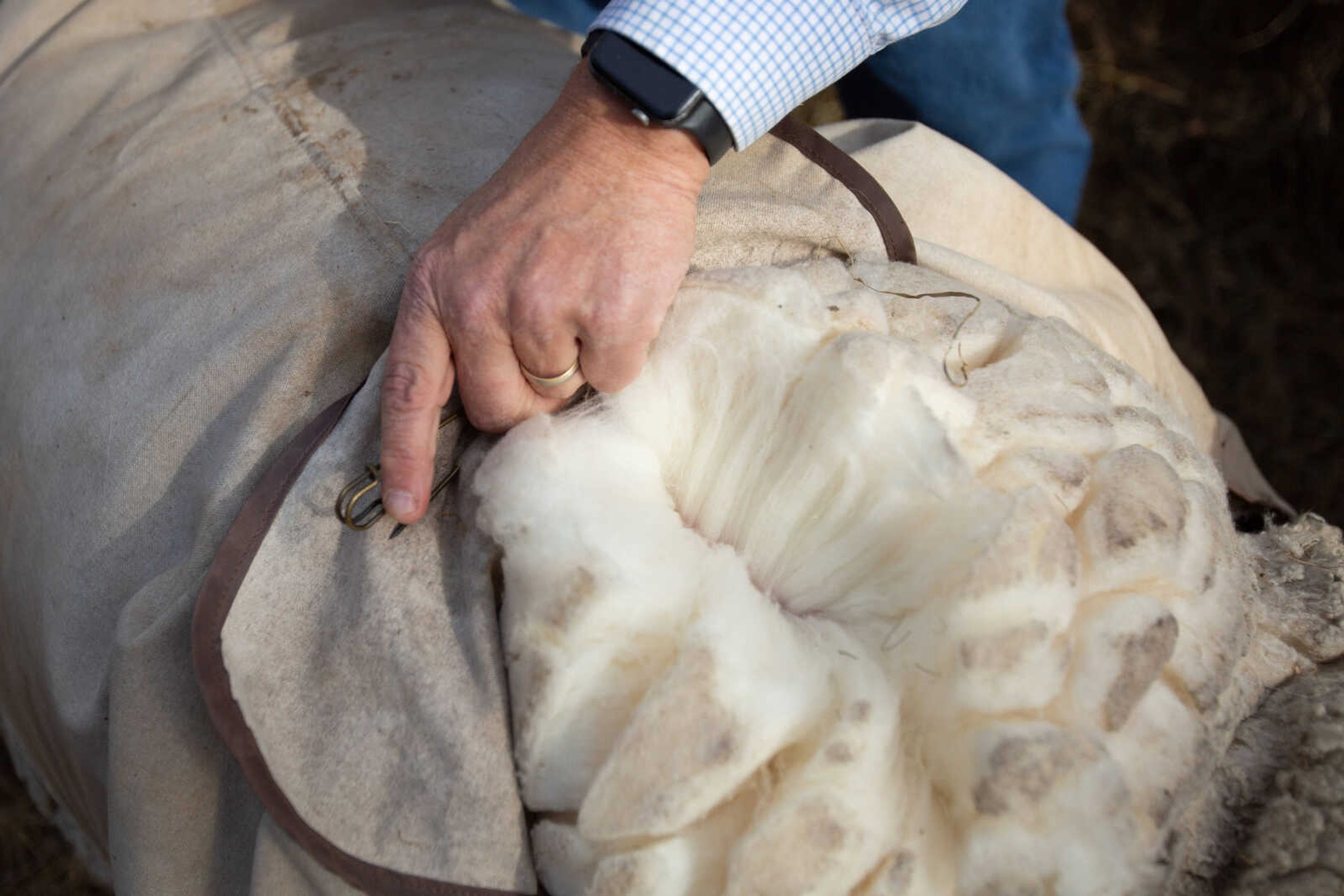
Their goal is for their sheep to have soft wool; any sort of stress the ewe goes through can be seen in their wool, as stress causes wool to break off, Ed says. As such, they work towards raising happy sheep through the environment, diet and way they talk to them.
The ewes’ wool averages at 19 micron; anything under 24 micron is considered fine wool, Ed says. The farmers have 20% of the wool spun into yarn; they sell the other 80% raw, mostly through Etsy, to spinners all across the U.S. and as far away as Canada and Ireland. In 2021, they harvested approximately 260 pounds of wool. Sometimes, people are so happy with the quality of the wool they purchase from the ranch, they request wool from that same ewe the next year, Ed says.
They also practice regenerative farming, fencing their land into small fields and putting all of the sheep in one field until they eat down the grass in it, then moving them to the next field, keeping them off each field for three weeks and on it for one week.
“That way, it’s better for the soil, the grass grows better and it’s grass-fed,” Ed says. “Part of it is just taking care of the soil, growing healthy animals, and what we try to do is really just create a good financial model so the farm is self-sustaining.”
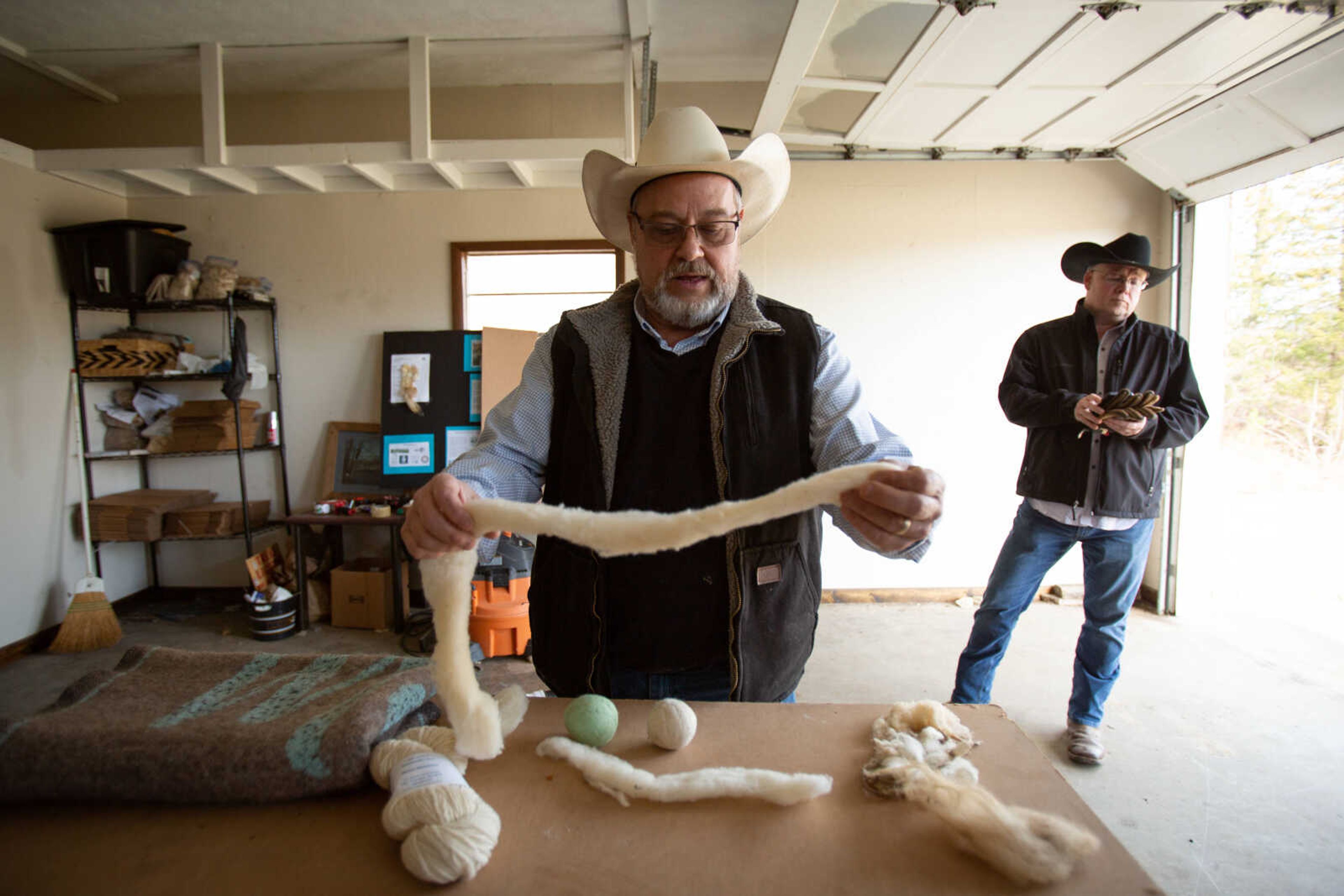
The focus of the ranch is providing farm-to-table options for the community, and they sell lamb through Spanish Street Farmacy in Cape Girardeau. In addition to the wool and lamb, they also sell free-range eggs and beef from the Scottish highland cattle, which Ed says is leaner than other types of beef. In the future, they hope to open a farm store at the ranch, to cater to campers who pass through the area on their way to campgrounds near the Castor River.
Stovall grew up on a farm in Texas, where his family raised approximately 100 goats and 400 chickens. Like Ed, he says he couldn’t wait to leave the farm to live in the city of Dallas. He came to Missouri by way of Georgia, North Carolina, Ohio, Puerto Rico and Central America, where he worked as an entrepreneur or corporate executive. While helping Ed build fence on the ranch one day, he asked if he could buy a quarter of beef from him, and Ed said yes. Then, he asked if he could become a partner in the ranch. Ed agreed.
“I get to be a kid again. I get to be a boy. Get to play in the mud, chase animals,” Stovall says of what he loves about being a partner in Ozark Highland Cattle Company. “I like being back on the farm.”
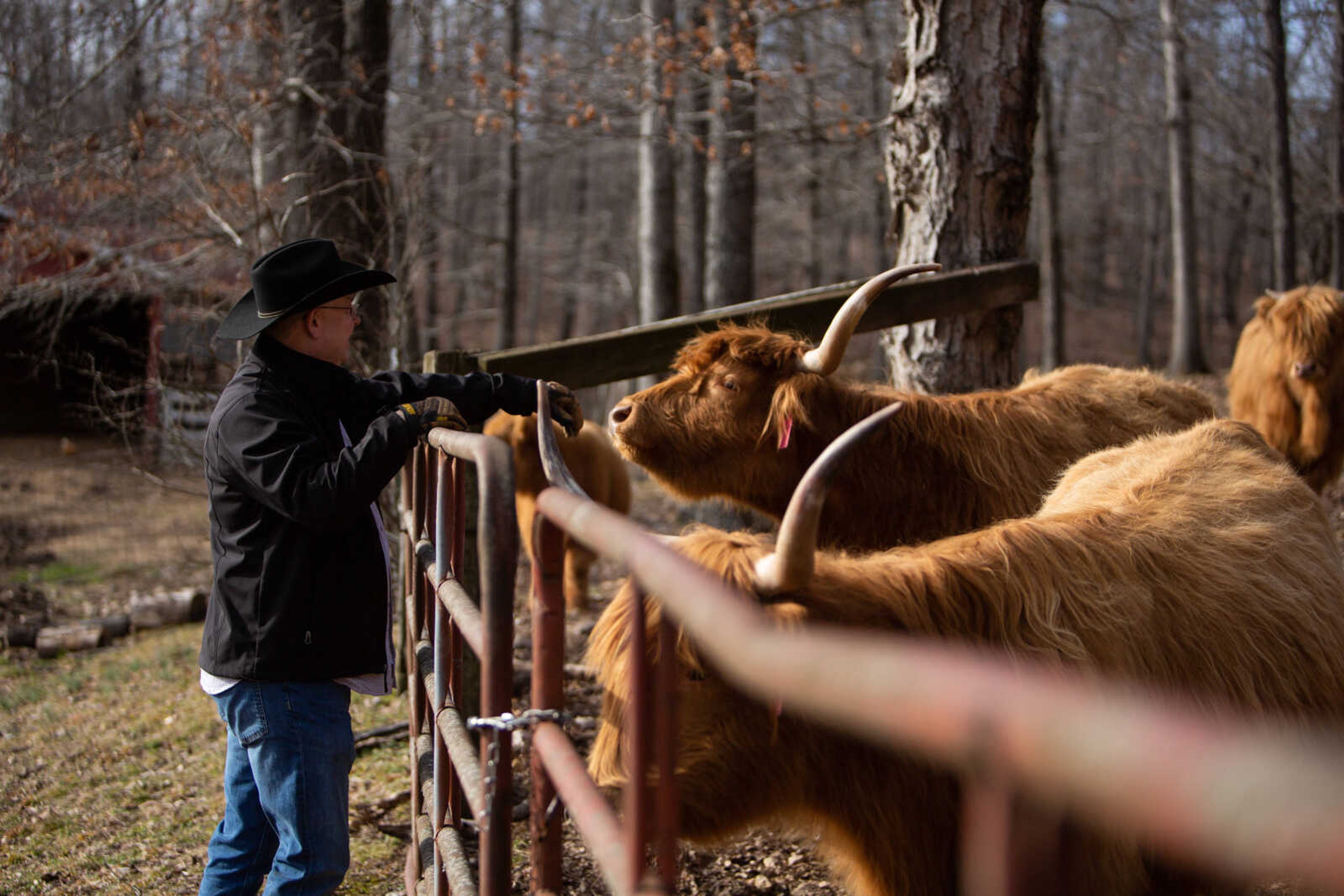
Johnston, on the other hand, is new to farming. He grew up in the Dallas suburbs growing vegetables and cooking with his grandparents who owned land — through these experiences, he became interested in hospitality management. Other than working as a horse wrangler one summer in New Mexico during college, however, he has never worked with animals.
He says being a partner in the Ozark Highland Cattle Company is about “walking the walk” of what he teaches to his students each day.
“I have a chef background and PhD in hospitality management, so to have the opportunity to be a part of that and raise the food myself, to see it go from farm to table, is an interesting and intriguing challenge,” Johnston says. “Going through the process is motivating for me — I believe in it. … It’s not only about the good for the environment; it’s good for the local community, as well. We have a passion for giving back to the world around us and leaving it better than we found it. Profit is second to that — this is tied into a bigger picture, helping our community get fresh, good food.”
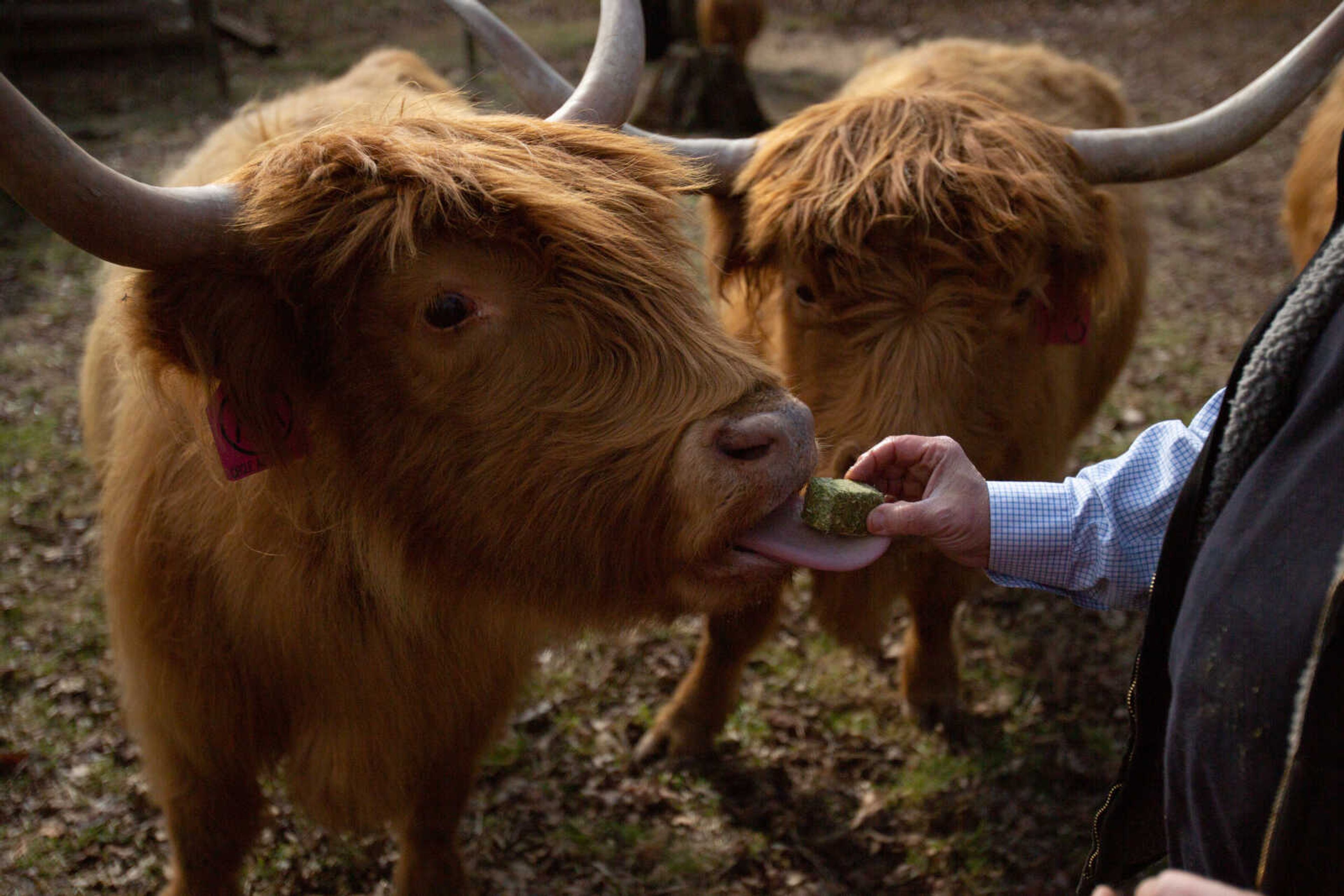
As professors in the entrepreneurship and hospitality departments at SEMO, the partners work with business students on marketing, business plans and social media campaigns for the farm. Students from the nearby Woodland High School have toured the farm, and the farm is open for tours to anyone who wants to learn more about sustainable agriculture. Mesta Meadows has also hosted birthday parties, and one of Ed’s students filmed a music video there.
Working with animals and being on the land, Ed says, help take away the stress of a hard day at the office.
“Life is so real out here,” Ed says of working on the ranch. “Sometimes, you can have a great day — you had a couple of twin lambs born today, and it’s fun. … They get up, and everything works great, and it’s just awesome. You can have a day where you have a sheep that you’ve done everything you possibly can, and it just dies. They just decide to die, and it just breaks your heart. … So, it’s very real. I’ve done high-tech work most of my life, worked on projects for years, and you eventually see them come to fruition. Out here, every day you do stuff, and you either do it or you don’t, and it has an impact. There’s something neat about that.”
__Want to tour the farm?__
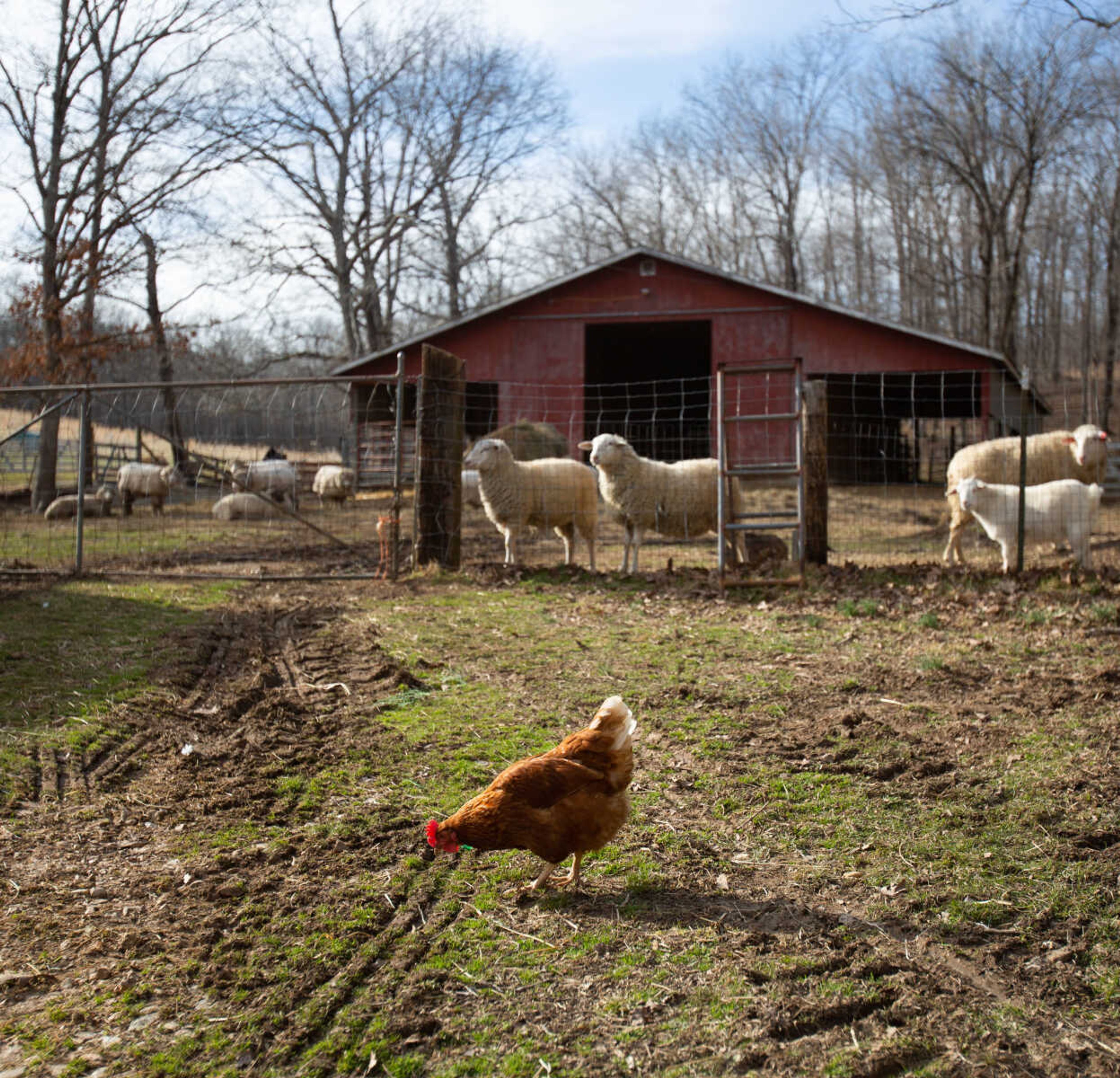
Email Ed Crowley at ed@mestameadows.com a couple of weeks before you want to tour. The farm is open to school groups and individuals who want to learn about sustainable farming practices and where their food comes from.
Connect with the Southeast Missourian Newsroom:
For corrections to this story or other insights for the editor, click here. To submit a letter to the editor, click here. To learn about the Southeast Missourian’s AI Policy, click here.


